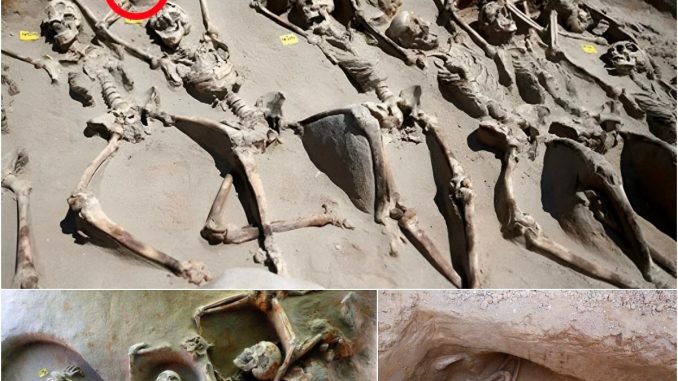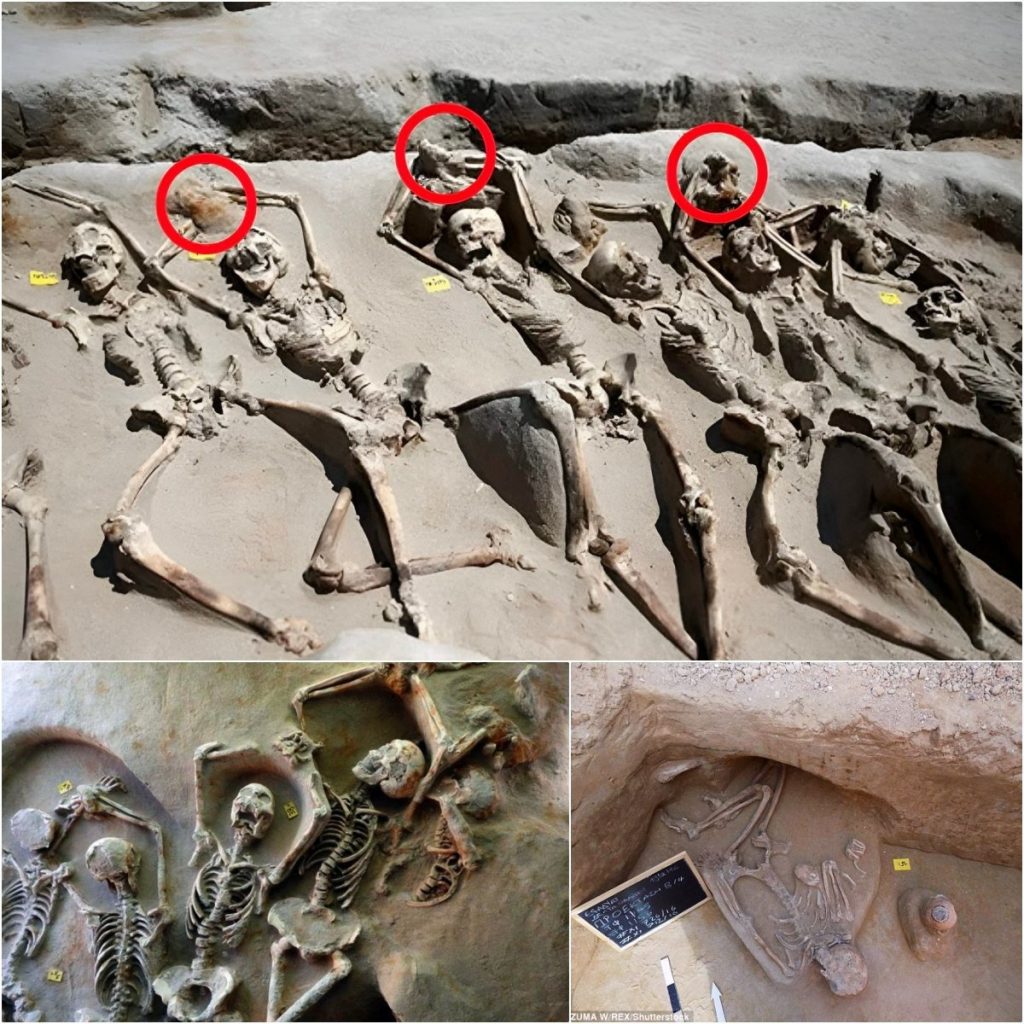
In the rugged terrain of ancient Greece, where myths and legends intertwine with the realities of history, archaeologists have unearthed a startling discovery that may shed new light on a little-known chapter of the region’s past. The remains of 80 skeletons, their wrists bound above their heads, hint at a tumultuous period in the seventh century BC when rebels dared to challenge the status quo with a daring coup.
The discovery took place in a remote archaeological site in Greece, where excavations uncovered a mass grave containing the skeletal remains of dozens of individuals. What set this find apart was the peculiar position of the skeletons—each with their wrists bound together above their heads—a practice that suggests they were victims of a violent and organized act of repression.
Initial analysis of the skeletal remains revealed evidence of trauma and injuries consistent with the use of force, further supporting the theory that these individuals met a violent end. But it was the historical context surrounding the discovery that truly captured the imagination of scholars and researchers.
The seventh century BC was a period of significant political upheaval in ancient Greece, marked by power struggles, social unrest, and the rise of tyrants and despots. Against this backdrop, rebels and dissidents often sought to challenge the authority of ruling elites through acts of rebellion and resistance.

One possible explanation for the mass grave is that these individuals were part of a failed coup attempt—an organized effort to overthrow the ruling regime and establish a new order. The binding of their wrists may have been a method of restraint or punishment, intended to quell dissent and deter future uprisings.
But the true story behind the skeletons remains shrouded in mystery, leaving scholars to speculate about the identities and motivations of the individuals buried in the mass grave. Were they political rebels, executed for their defiance? Or were they victims of a brutal crackdown by those in power, their voices silenced in the struggle for control?
As archaeologists continue to study the remains and the artifacts found at the site, new insights may emerge, shedding light on the events that led to the creation of the mass grave and the fate of those interred within it. But regardless of the specifics, the discovery serves as a poignant reminder of the human cost of political conflict and the enduring quest for power and freedom throughout history.
In the ancient soil of Greece, where the echoes of the past still resonate, the discovery of 80 bound skeletons offers a tantalizing glimpse into a turbulent era of rebellion and resistance—a chapter of history waiting to be uncovered and understood.
Leave a Reply